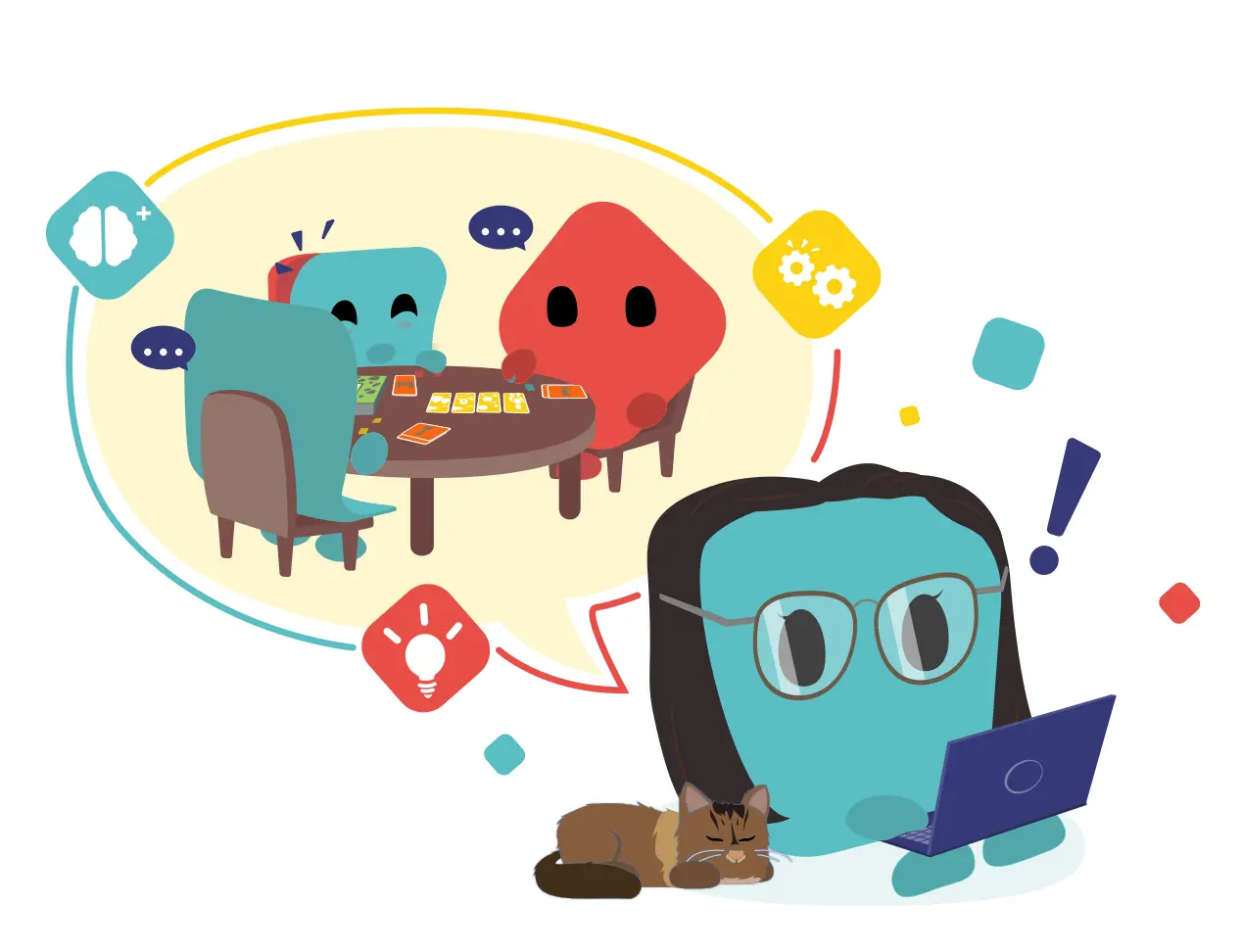- Project
- Completed
Effects of playing board games on cognitive functioning: from adolescence to adulthood

Léa Martinez PhD in Cognitive Psychology
Léa Martinez is a Doctor of Cognitive Psychology. She completed her thesis on board games and cognitive functions at the CeRCA lab (Research Center on Cognition and Learning), University of Poitiers, funded by Asmodee. Her work focuses on the relationships between modern board game play, cognitive functioning and academic learning. She also studies the specific characteristics of board games as moderators of these links.
Sensitive to the challenges of scientific dissemination, she took on a Sustainability Project Manager position, in charge of promoting research at Asmodee. As such, she became co-head of the Game in Lab program.
-
Project start date :
2020/11/02 -
Status :
Completed -
Research organization :
CeRCA Lab (Centre for Research on Cognition and Learning, UMR CNRS 7295), University of Poitiers -
Team :
Prof. Eric Lambert and Dr Manuel Gimenes (University of Poitiers, CeRCA)
In September 2020, Léa Martinez was selected to be the first Game in Lab PhD student under an industrial PhD contract. In partnership with Asmodee, and under the direction of Professors Eric Lambert and Manuel Gimenes, she prepared her thesis for three years at the CeRCA Lab (Centre for Research on Cognition and Learning) of the University of Poitiers, before defending her thesis brilliantly in December 2023.
Project overview
The research project aims to better understand the connections between playing board games and the development of certain cognitive functions, which are essential in many learning cases.
The research objectives are:
1. To assess the relationships that exist between playing board games, cognitive functions and academic achievement in young adults and adolescents
2. To determine the effect of a board game session on cognitive functioning in young adults
3. To define the conditions necessary to reveal the effects of board games on cognition, focusing on the player’s experience and game mechanics

Methodology
To meet these research objectives, six studies were conducted with adolescents and young adults. A first study served to develop a tool to evaluate players’ subjective state, adapted to board games. Two studies used a correlational approach to investigate the connections between board games, cognitive performance and the academic success of adolescents and young adults. Three studies used an experimental approach to evaluate the immediate effects of a short board game session on cognitive performance in young adults. The variables necessary for the connections and effects studied (subjective state of the players, type of game, etc.) to appear were evaluated in these five studies.
Outcomes
The expected results were a positive relationship between board game play and cognitive functioning, as well as a specific role of players’ feelings and game characteristics in this relationship.
At the end of the thesis, the results indicated that connections can be observed between board game play and cognitive functions, under specific conditions. It appears that the functions used during game play (inhibitory control, visual spatial attention, logical mathematical skills) are the only ones related to, and impacted in the short term by, playing a same game. This thesis offers especially substantiated perspectives for more in-depth studies on the subject, one that is still studied too little in cognitive psychology.